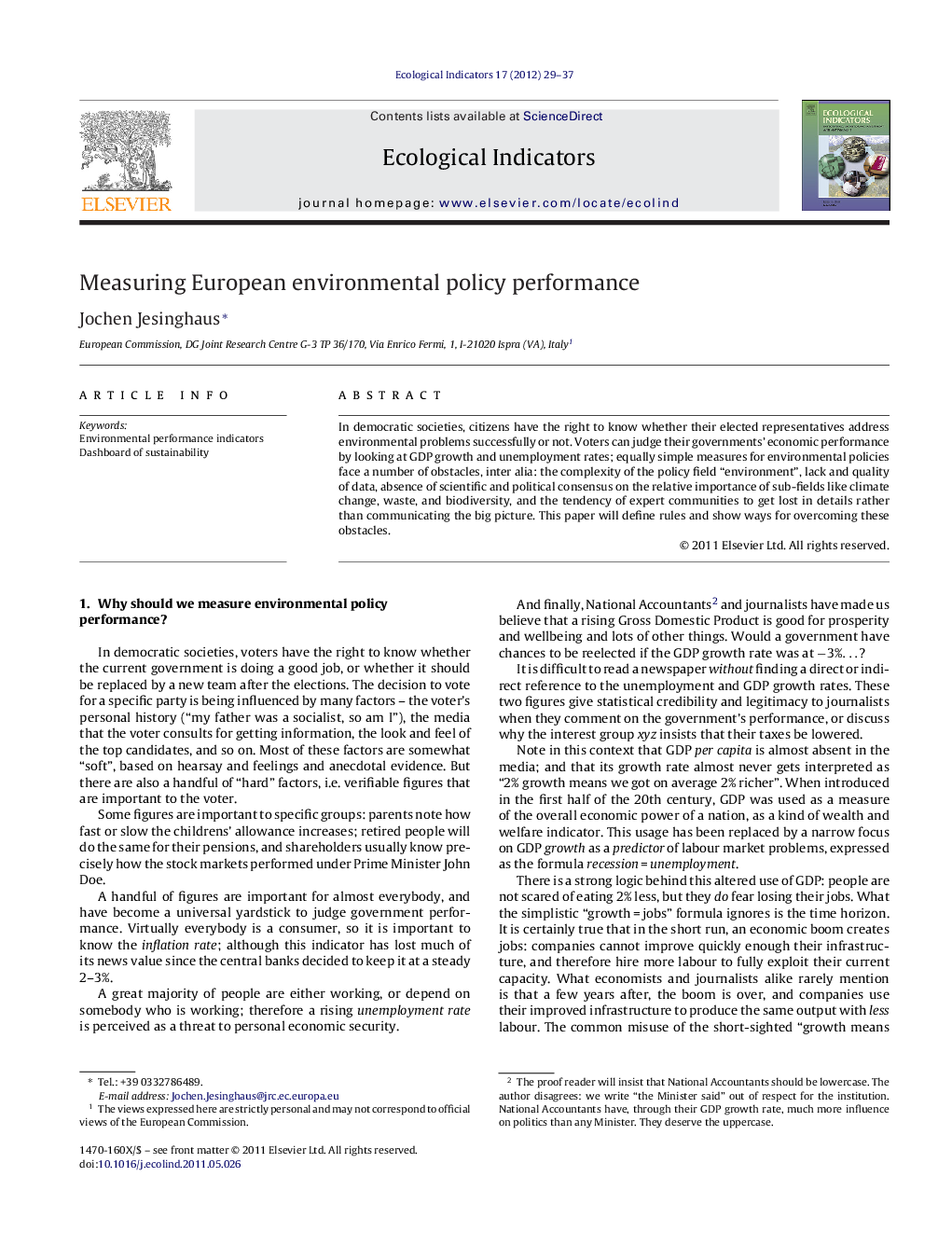| Article ID | Journal | Published Year | Pages | File Type |
|---|---|---|---|---|
| 4373739 | Ecological Indicators | 2012 | 9 Pages |
Abstract
In democratic societies, citizens have the right to know whether their elected representatives address environmental problems successfully or not. Voters can judge their governments' economic performance by looking at GDP growth and unemployment rates; equally simple measures for environmental policies face a number of obstacles, inter alia: the complexity of the policy field “environment”, lack and quality of data, absence of scientific and political consensus on the relative importance of sub-fields like climate change, waste, and biodiversity, and the tendency of expert communities to get lost in details rather than communicating the big picture. This paper will define rules and show ways for overcoming these obstacles.
Keywords
Related Topics
Life Sciences
Agricultural and Biological Sciences
Ecology, Evolution, Behavior and Systematics
Authors
Jochen Jesinghaus,
